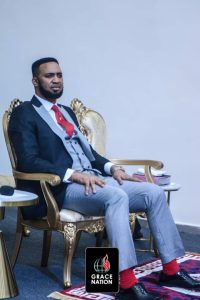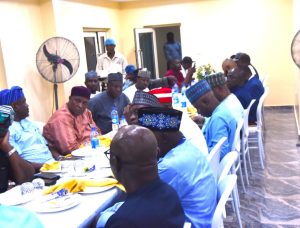Many people do not know the true story about the death of one of the most respected and honoured man in Igboland, Chief Chukwuemeka Ojukwu. But in this article today, the true story will be discussed in this article.
Chukwuemeka Ojukwu’ s Early Life And Education
Chukwuemeka ” Emeka” Odumegwu- Ojukwu was born in northern Nigeria on November 4, 1933, to Sir Louis Odumegwu Ojukwu, an Igbo merchant from present- day Nnewi, Anambra State. Sir Louis worked in the transportation industry and became one of Nigeria’ s wealthiest men as a result of the post- World War II economic boom. He began his studies in Lagos, Nigeria’ s South- West region.
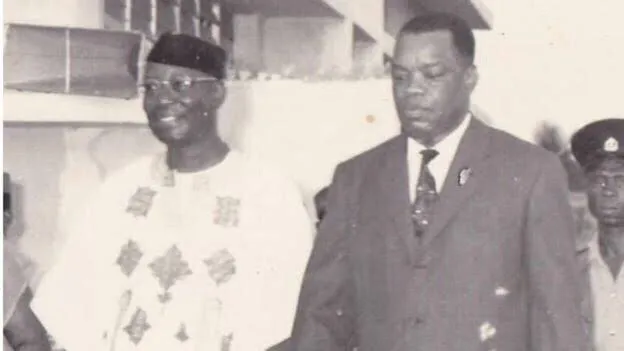
In 1943, Emeka Ojukwu began his secondary school education at CMS Grammar School in Lagos, when he was ten years old. In 1944, he was sent to King’ s College, Lagos, where he became embroiled in a dispute that resulted in his brief detention for attacking a British instructor who suppressed a student strike that he was a member of. This event received a lot of attention in the local press. His father sent him to the United Kingdom when he was 13 years old to pursue his education, first at Epsom College and then at Lincoln College, Oxford University, where he received a master’ s degree in history. In 1956, he returned to Nigeria.
Ojukwu began his career in the Nigerian government service as an Administrative Officer at Udi, which is now part of Enugu State. After two years in the colonial civil service, he went to join the military, originally enlisting as a non- commissioned officer (NCO) in Zaria, in order to break free from his father’ s control over his civil service career.
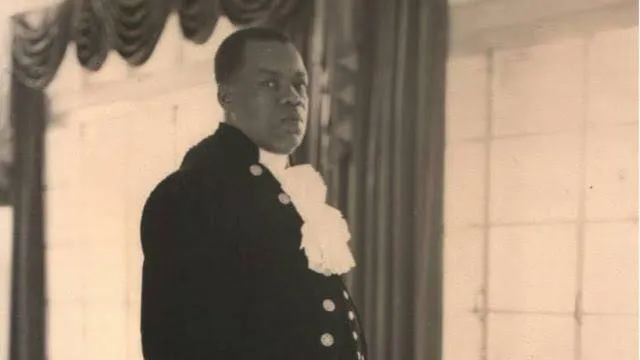
Because his father (Sir Louis) pulled political ties with the then- Governor- General of Nigeria (John Macpherson) to prevent Emeka from receiving an officer- cadetship, Ojukwu was obliged to enlist as an NCO. Emeka defied Sir Louis and Governor- General Macpherson’ s predictions that she would not stay to the demanding NCO schedule, but she did. The British Depot Commander nominated Emeka for an officer’ s commission after an incident in which Ojukwu corrected a drill sergeant’ s mispronunciation of the Lee- Enfield. 303 rifle’ s safety mechanism.
Emeka moved from Zaria to the Royal West African Frontier Force Training School in Teshie, Ghana, and then to Eaton Hall, where he was commissioned as a 2nd Lieutenant in March 1958.
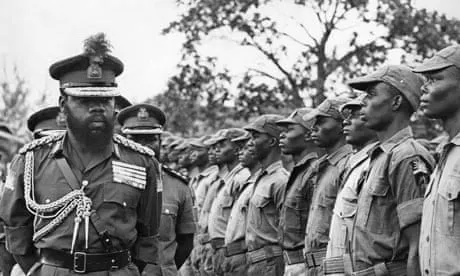
He was one of the first and only university graduates to be commissioned into the army. Later, he went to Warminster Infantry School and Hythe Small Arms School. He was deployed to the Army’ s Fifth Battalion in Kaduna after completing additional military training.
Only 15 of the 250 officers in the Nigerian Military Forces were Nigerians at the time. There were a total of 6, 400 ranks, 336 of which were British. After service in the United Nations’ Congo peacekeeping mission under Major General Johnson Thomas Aguiyi- Ironsi, Lieutenant- Colonel Ojukwu was promoted to Lieutenant- Colonel in 1964 and assigned to the Nigerian Army’ s 5th Battalion in Kano.
1966 coups and events leading to the Nigerian Civil War
Major Patrick Chukwuma Kaduna Nzeogwu executed and announced the deadly military coup in Kaduna, also in northern Nigeria, on 15 January 1966, while Lieutenant- Colonel Ojukwu was in Kano, northern Nigeria. To Ojukwu’ s credit, the coup lost a lot of momentum in the north, where it had previously succeeded. Lt. Col. Odumegwu- Ojukwu backed the forces loyal to Major- General Aguiyi- Ironisi, the Supreme Commander of the Nigerian Armed Forces. Major Nzeogwu was in charge of Kaduna, but the coup attempt in other parts of Nigeria had failed.
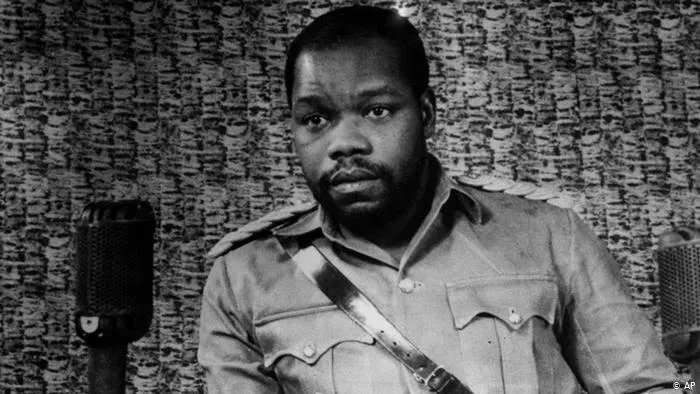
Aguiyi- Ironsi became the first military head of state after taking over the country’ s authority. He appointed military governors for the four regions on Monday, January 17, 1966. Military Governor of the Eastern Region is Lt. Col. Odumegwu- Ojukwu. Lt. – Cols Hassan Usman Katsina (North), Francis Adekunle Fajuyi (West), and David Akpode Ejoor (South) were among the others (Mid West). Brigadier B. A. O. Ogundipe, Chief of Staff, Supreme Headquarters, Lt. Col. Yakubu Gowon, Chief of Staff, Army HQ, Commodore J. E. A. Wey, Head of the Nigerian Navy, Lt. Col. George T. Kurubo, Head of the Air Force, and Col. Sittu Alao comprised the Supreme Military Council.
On May 29, 1966, the anti- Igbo pogrom began. This caused complications for Odumegwu Ojukwu, who did everything he could to avoid retaliation and even urged people to return after receiving promises of their safety from his putative colleagues in the north and west.
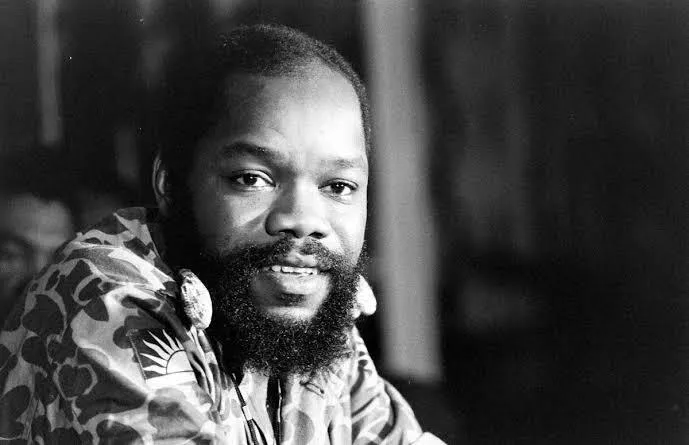
Majors Murtala Muhammed, Theophilus Yakubu Danjuma, and Martin Adamu led a group of officers, including Majors Murtala Muhammed, Theophilus Yakubu Danjuma, and Martin Adamu, in a mutiny that later became known as the ” Counter- Coup” or ” July Rematch, ” on July 29, 1966. Due to the efforts of the brigade commander and the hesitation of northern soldiers stationed in the region, the coup failed in the south- eastern part of Nigeria, where Ojukwu was the military governor (partly due to the mutiny leaders in the East being Northern whilst being surrounded by a large Eastern population).
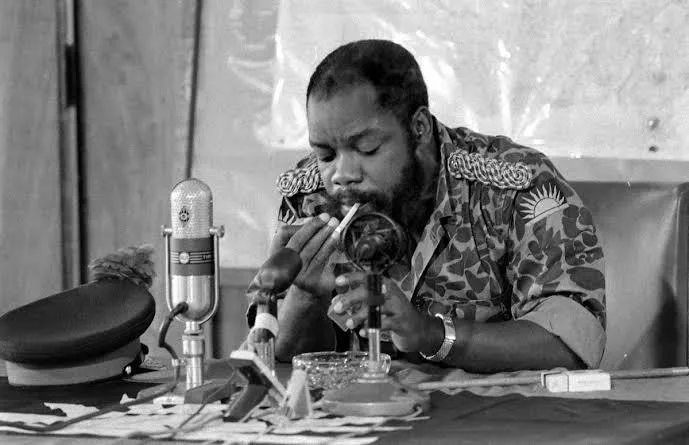
General Aguiyi- Ironsi, the Supreme Commander, and his host Colonel Fajuyi were kidnapped and slain in Ibadan. Ojukwu insisted on maintaining the military hierarchy after Ironsi’ s death was acknowledged. Brigadier Babafemi Ogundipe was the most senior army officer after Ironsi. Despite the fact that Gowon and Ojukwu were of the same rank in the Nigerian Army, the counter- coup commanders insisted that Lieutenant Colonel Yakubu Gowon be appointed as the country’ s leader. Ogundipe was unable to establish his authority in Lagos because the soldiers available to him (Guard Battalion) were under the command of Joseph Nanven Garba, a member of the coup. Ogundipe decided to withdraw as a result of this realization. As a result, Ogundipe could not execute Ojukwu’ s demands unless the coup plotters agreed (which they did not). The consequences from this resulted in a stalemate between Ojukwu and Gowon, which set in motion the events that eventually led to Nigeria’ s civil war.
The Return of Chukwuemeka Ojukwu to Nigeria
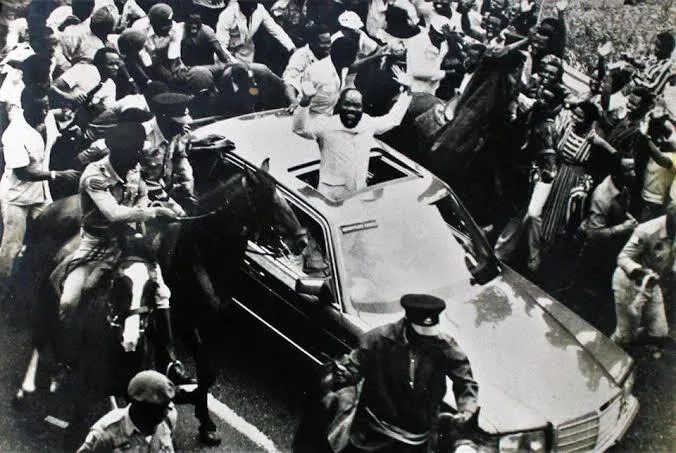
Ojukwu launched his fight to return to Nigeria in 1981. On May 18, 1982, Nigerian President Shehu Aliyu Usman Shagari gave Ojukwu a pardon, allowing him to return to the country as a private citizen. On June 18, Ojukwu returned to Nigeria from the Ivory Coast. In 1983, Ojukwu announced his candidacy for the Nigerian Senate. The official tally showed him losing by 12, 000 votes, but in September of that year, a court moved to overturn the decision, charging election fraud. The disputed outcome was rendered moot on December 31, 1983, when the Shagari government was overthrown in a Nigerian coup d’ état. Hundreds of political figures were imprisoned by the Buhari dictatorship in early 1984, including Ojukwu, who was incarcerated at the Kirikiri Maximum Security Prison. Later that year, he was liberated.
In 1994, Ojukwu married for the third time, he married Bianca Onoh (former Miss Intercontinental and future ambassador). Afamefuna, Chineme, and Nwachukwu were the couple’ s three children. Ojukwu ran for president twice during the Fourth Republic era, but lost both times.
Chukwuemeka Ojukwu’ s Death
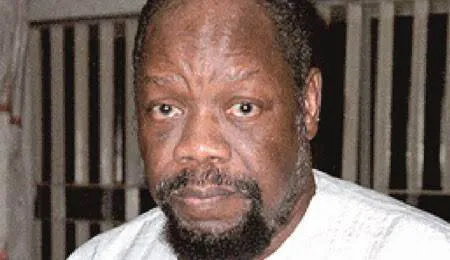
Ikemba Odumegwu Ojukwu died in the United Kingdom on November 26, 2011, at the age of 78, after a brief illness. On the day his remains was flown back to Nigeria from London before his burial on Friday 2 March, the Nigerian Army bestowed the highest military honor upon him and held a funeral parade for him in Abuja, Nigeria. He was laid to rest in a newly constructed mausoleum in his Nnewi compound. He had an elaborate weeklong funeral service in Nigeria with Chief Obafemi Awolowo, during which his remains was taken around the five Eastern states of Imo, Abia, Enugu, Ebonyi, and Anambra, as well as the nation’ s capital, Abuja. In addition, memorial services and public events were conducted in his honor across Nigeria, including Lagos and Niger State, where he was born, as well as as far away as Dallas, Texas, in the United States. Ex- President Goodluck Jonathan of Nigeria and ex- President Jerry Rawlings of Ghana, among others, attended his funeral.
by Chibueze Obumneme Anasieze









